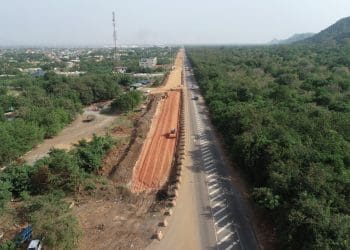Phase 2a clinical trials for a potential Lassa fever vaccine are currently underway in Ghana, Nigeria, and Liberia, marking a significant step in the global effort to tackle one of West Africa’s most persistent public health challenges.
The trials, which involve a combined sample of 612 participants across the three countries started in March 2024.
Dr. Henshaw Mandi, a consultant to the Coalition for Epidemic Preparedness Innovations (CEPI), disclosed this at the ongoing 2nd ECOWAS Lassa Fever International Conference (ELFIC 2025), held in Abidjan, Côte d’Ivoire.
He noted that this phase builds on earlier clinical studies carried out in the United States and Liberia.
According to him, phase 1a trials were completed in the U.S. and Liberia in 2023, while phase 1B trials were conducted solely in Liberia.
Roadmap toward a vaccine
Dr. Mandi explained that the ongoing phase 2A trial is only one stage of a rigorous process.
“Once completed, we will proceed to phase 2B and subsequently to phase three before reaching the point of licensing and distributing a final vaccine candidate,” he said.
He emphasised that CEPI and its partners are committed to ensuring that any eventual vaccine does not become a tool only accessible to wealthier nations.
To achieve this, the Regionalised Vaccine Manufacturing Collaborative has been established. The initiative aims to build capacity in select countries within the sub-region to produce vaccines locally.
Although no official decision has been made on the specific countries that will manufacture the vaccine, Dr. Mandi cited Senegal as one with the necessary infrastructure and experience to support vaccine production.
Wider epidemiological trials underway
In addition to the vaccine trials, Dr. Mandi revealed that large-scale epidemiological studies on Lassa fever are ongoing in five West African countries: Nigeria, Benin, Sierra Leone, Liberia, and Guinea Conakry.
The first phase of this study involves some 23,000 participants, making it one of the most extensive data-gathering exercises on Lassa fever in the region.
Once concluded, a second phase involving 5,000 participants will be launched in Nigeria, Sierra Leone, and Liberia.
Dr described the studies as ritical to improving understanding of Lassa fever spreads to guide both vaccine development and public health interventions.
The persistent threat of Lassa Fever
Lassa fever, a viral haemorrhagic fever endemic in parts of West Africa, has long burdened communities with severe illness and high mortality rates.
Roughly one in five infections progresses into severe disease, attacking vital organs such as the liver, spleen, and kidneys.
The disease has devastating consequences not only for health systems that are already overstretched but also for communities that depend on small-scale farming and trading.
Many rural areas lack access to early diagnosis and effective treatment, resulting in preventable deaths and prolonged outbreaks.
Despite its severity and recurring outbreaks, there is currently no approved vaccine or antiviral drug for Lassa fever, making these ongoing trials an important turning point in the global response.
A high-level gathering for regional action
The ELFIC 2025 conference, organised by the West African Health Organisation (WAHO) with the support of CEPI and other global partners, has been described as the foremost international forum for tackling Lassa fever.
The four-day programme, held under the theme “Beyond Borders: Strengthening Regional Cooperation to Combat Lassa and Emerging Infectious Diseases”, brings together scientists, policymakers, and development partners to share research findings and design collaborative strategies.
Sessions at the conference include keynote addresses, technical workshops, panel discussions, and ministerial roundtables. Participants are exploring advances in vaccine and diagnostic tools, outbreak surveillance systems, and strategies for community engagement.
They are also discussing long-term frameworks to ensure sustainable funding and policy support for Lassa fever elimination.
The event also features exhibitions showcasing innovations from research institutions, NGOs, and private sector organisations, alongside networking opportunities to foster stronger collaboration across sectors and countries.
Global partners in the fight against epidemics
ELFIC 2025 has attracted high-level representation from across ECOWAS member states and the international health and development community.
Among the organisations present are the World Health Organization (WHO), the World Bank, the African Development Bank (AfDB), German development bank KfW, and CEPI, all reaffirming their commitment to epidemic preparedness in Africa.
By convening scientists, governments, and development financiers in a single forum, the conference seeks to ensure that scientific progress on Lassa fever translates into real-world health protection for millions of West Africans.
Hope for the future
While significant challenges remain, the launch of phase 2A trials signals tangible progress toward a long-awaited vaccine for Lassa fever.
For communities across West Africa, where the disease continues to claim lives and disrupt livelihoods, the ongoing research offers hope that science and regional cooperation can deliver lasting solutions.












